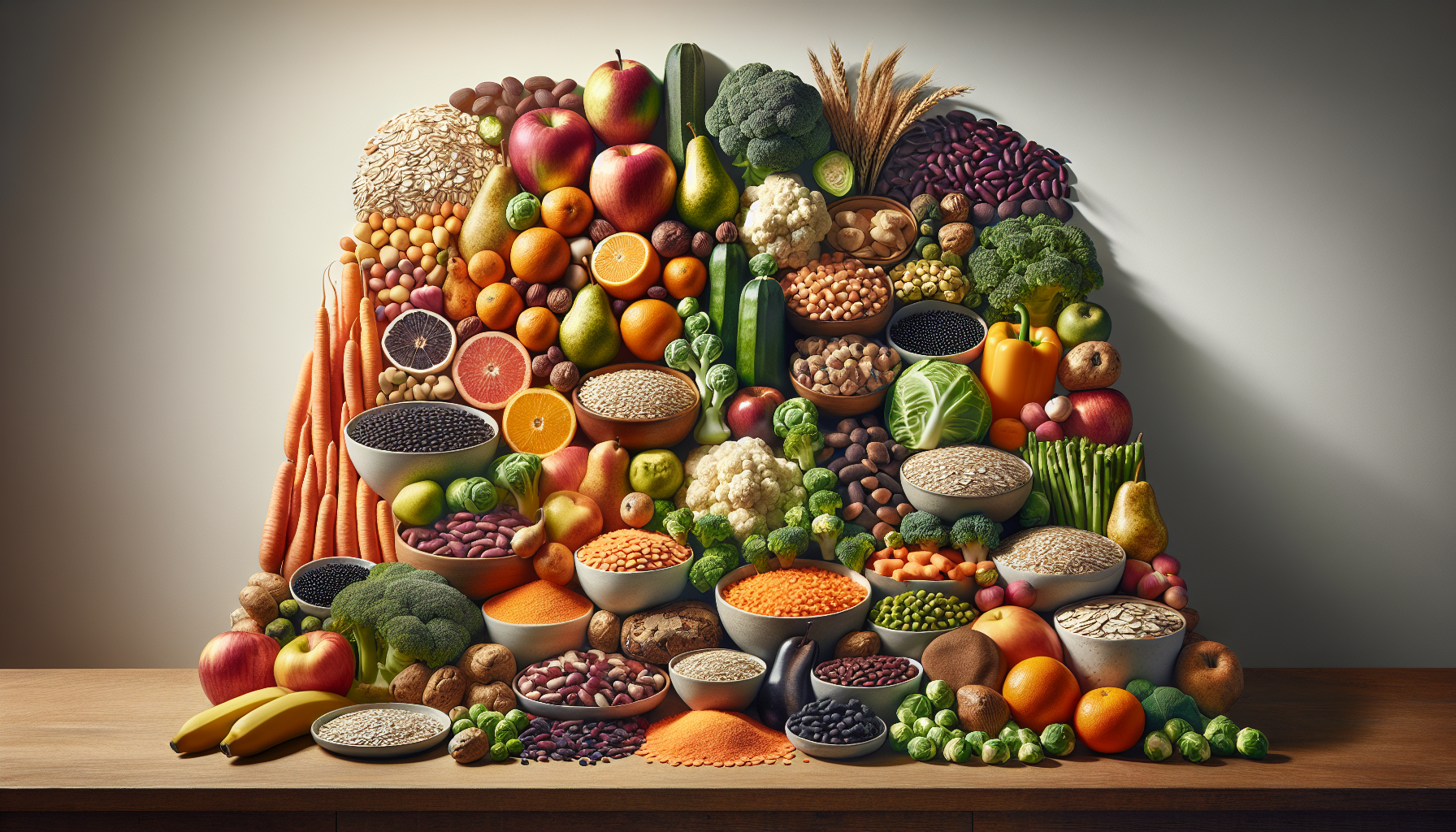In an era where cardiovascular diseases remain a leading cause of morbidity and mortality globally, preventative health measures have never been more paramount. One such measure, often overlooked in its simplicity yet profound in its impact, is the consumption of dietary fibers. Dietary fibers, found in plant foods, are indigestible carbohydrates that traverse our digestive system, bestowing myriad health benefits, particularly for cardiovascular health.
Understanding Dietary Fibers
There are two types of dietary fibers: soluble and insoluble. Soluble fibers dissolve in water to form a gel-like substance, which can help to lower blood cholesterol and glucose levels. Insoluble fibers, on the other hand, do not dissolve in water and help to increase stool bulk, aiding in bowel regularity and preventing constipation.
The Cardiovascular Connection
The link between dietary fibers and cardiovascular health is well-documented. A diet rich in high-fiber foods is associated with a lower risk of developing heart disease. Here’s how dietary fibers contribute to heart health:
- Cholesterol Reduction: Soluble fibers can reduce the absorption of cholesterol into the bloodstream, which can lower low-density lipoprotein (LDL), or "bad," cholesterol levels.
- Blood Pressure Control: High fiber intake is associated with a reduced risk of hypertension, a major risk factor for heart disease.
- Weight Management: Fibers increase satiety, leading to lower calorie intake and weight management, which is crucial for maintaining cardiovascular health.
- Blood Sugar Regulation: By slowing the absorption of sugar, high-fiber diets can help control blood sugar levels, reducing the risk of type 2 diabetes, which is a risk factor for heart disease.
Integrating Dietary Fibers into Your Diet
To reap the cardiovascular benefits of dietary fibers, it’s essential to incorporate a variety of fiber-rich foods into your diet. Here are some strategies:
- Whole Grains: Choose whole-grain bread, pasta, and cereals over refined products.
- Fruits and Vegetables: Aim for a colorful plate with a variety of fruits and vegetables.
- Legumes: Include beans, lentils, and chickpeas in your meals.
- Nuts and Seeds: A handful of almonds, chia seeds, or flaxseeds can boost your fiber intake.
For more comprehensive information on dietary fibers, consider exploring resources on digestive health, as the benefits of fibers extend beyond cardiovascular wellness.
Expanding Beyond Diet: Lifestyle Interventions
While diet plays a critical role, it is important to integrate other lifestyle changes to maximize cardiovascular health. Regular physical activity, maintaining a healthy weight, quitting smoking, and managing stress are crucial components of a heart-healthy lifestyle. For those seeking to enhance their fitness regimen, guidance can be found through resources on engaging in cardiovascular fitness.
The Role of Dietary Fibers in Lipid Management
Managing lipid levels is a key strategy in preventing heart disease. Dietary fibers, particularly soluble fibers, have been shown to positively affect lipid profiles. To delve deeper into managing lipid levels through diet, refer to the article on managing lipid levels through diet and lifestyle.
The Synergy of Diet and Medication
In some cases, diet alone may not be sufficient to manage heart health, and medication may be prescribed. Understanding the role of these medications and how they interact with dietary choices is essential. For more insights, reading about the role of anticoagulants in heart health maintenance can be informative.
The Scientific Perspective
Numerous studies have supported the role of dietary fibers in reducing the risk of cardiovascular disease. One such study published in the American Heart Association’s journal Circulation found that high dietary fiber intake was associated with a significant reduction in the risk of both coronary heart disease and cardiovascular disease. Another research article in the American Journal of Clinical Nutrition highlighted the cholesterol-lowering effects of soluble fibers.
The Global Perspective
The World Health Organization (WHO) recommends an intake of at least 25 grams of dietary fiber per day for adults to derive significant health benefits. However, many populations do not meet this recommendation. Increasing global awareness and education on the importance of dietary fibers can play a significant role in improving cardiovascular health on a broader scale.
Conclusion
Incorporating dietary fibers into one’s diet is a simple yet effective strategy for cardiovascular health maintenance. It’s a natural approach that complements medical therapies and can significantly reduce the risk of heart disease. As the adage goes, prevention is better than cure, and dietary fibers serve as a testament to this wisdom.
To continue exploring the vast landscape of cardiovascular health, additional resources and articles can be found at Avix Health, a platform dedicated to disseminating valuable health information.



